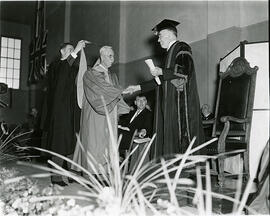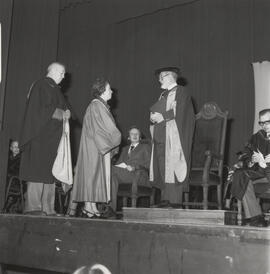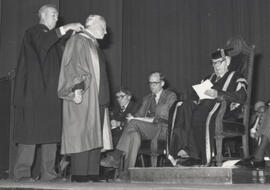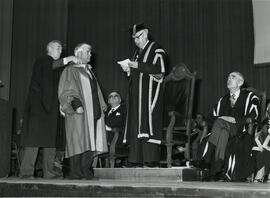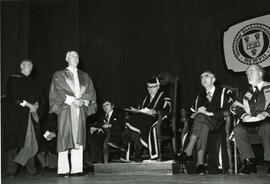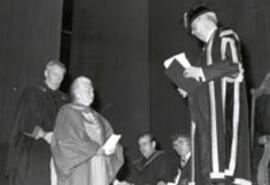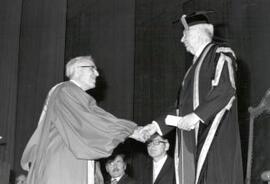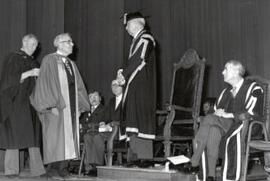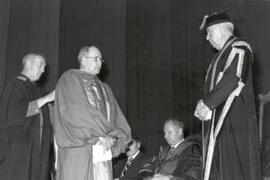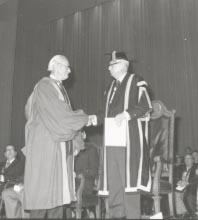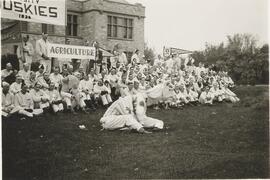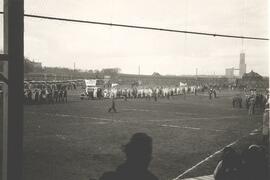Honourary Degrees - Presentation - William J.F. Warren
- A-1670
- Pièce
- 1952
Fait partie de University of Saskatchewan Photograph Collection
F.H. Auld, University Chancellor, making presentation of an honourary Doctor of Laws degree to William J.F. Warren at Convocation held in Physical Education Gymnasium.
Bio/Historical Note: William John Finley Warren (1873-1963) was born in Balderson,, Ontario, near Perth, and was educated at the Saskatchewan Agricultural College. He settled in Belbeck, Saskatchewan. near Moose Jaw, in 1906. In 1917 Warren enrolled in the Associate Course in the School of Agriculture at the University of Saskatchewan. He received his Diploma in 1919, but returned to take another year of special studies. Warren soon became prominent as a producer and exhibitor of registered seed. He was president of the Moose Jaw Agricultural Society, of the Saskatchewan Registered Seed Growers’ Association and of the Saskatchewan Agricultural Societies' Association. He represented Thunder Creek in the Legislative Assembly of Saskatchewan from 1921 to 1925 as a Progressive Party member. Warren was defeated by Robert Scott Donaldson when he ran for re-election to the provincial assembly in 1925. As a rancher, Warren had Aberdeen-Angus cattle and won a grand championship at both the Toronto Royal and the Chicago International. Warren died in 1963 and is buried in Moose Jaw, Saskatchewan.

